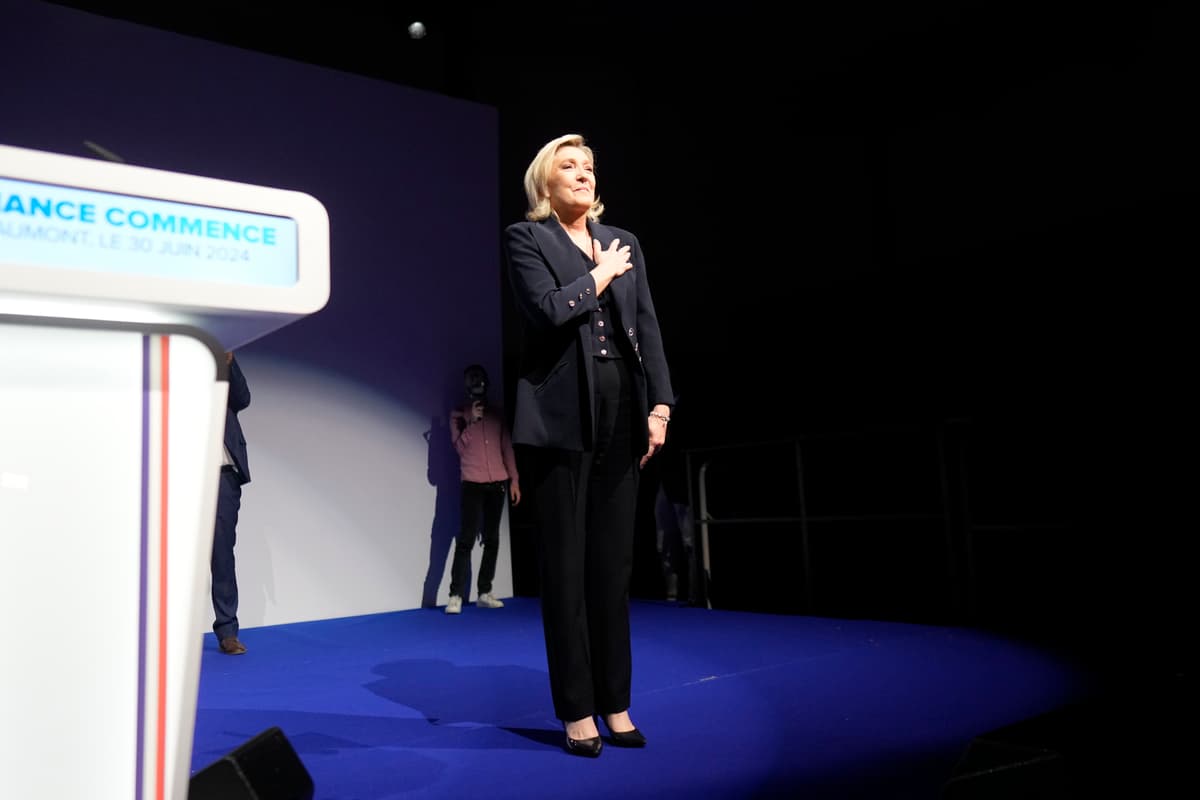As Macron Navigates the Stalemate at Paris, Marine Le Pen Turns to Brussels and a Move at European Level
French rightist is organizing a new coalition in the European parliament.

President Macron’s frustrated young prime minister, Gabriel Attal, handed in his resignation on Monday, only for Mr. Macron to beseech him to stay on in the name of “stability” — a rare commodity in France right now. Marine Le Pen, undeterred by her National Rally’s third-place showing in the second round of the Parliamentary election, is back in the trenches.
That means back to where this latest saga of rudderless France began: Brussels. On Monday, as the French capital swirled with uncertainty, Mme. Le Pen put together a new right-wing coalition in the European Parliament. Called Patriots for Europe, the group will replace its predecessor, Identity and Democracy. Her co-author in the endeavor is Hungary’s prime minister, Viktor Orbán.
The objectives for the European partners involved hinge on strengthening the power of sovereign European states while keeping the power of the EU bureaucratic machinery in check. For Mme. Le Pen, it is also a way to capitalize on the headway the National Rally made in last month’s elections for the European Parliament.
It might be reductive to say, but by consolidating those gains — which are what precipitated Mr. Macron’s decision to call the snap vote in France — Mme. Le Pen is quietly hopscotching over her party’s third-place showing last Sunday. With 84 European lawmakers, Patriots for Europe is now the third largest group in the European Parliament.
Playing the long game at Brussels, where decisions ricochet back to European capitals, is part of the overall strategy to eventually win the prize of Paris, strengthening its global position in the process. In December, Mme. Le Pen said that “the EU debases our history and our cultures, it sees us as packaged goods, and harms our people.” She also took aim at European Commission president, Ursula von der Leyen, a Macron ally, saying that for her “immigration is not a problem but a project.”
The new grouping consists of 13 national parties and will aim to return more sovereign control over national affairs to the EU states and advocate for stricter measures against illegal immigration. At a press conference on Monday, Harald Vilimsky of Austria’s Freedom Party said that “We want to reshape the European Union, we want to ensure that asylum is not abused and we want peace on our doorstep.”
The representative of the French delegation at that press conference, Jean-Paul Garraud, stated that Patriots for Europe would work “against the hegemony of the European Commission and the majority of the European Parliament, which has now been shaken.”
There are more signs that the far right is pitching toward the center. The Dutch Party of Freedom, led by Geert Wilders, has joined the new Patriots for Europe bloc. Spain’s conservative Vox party has switched over to it from the more right-wing European Conservatives and Reformists bloc. Notably, Germany’s right-wing Alternative for Germany party has been excluded from the new Patriots for Europe formation.
It was widely anticipated that Ms. Le Pen and her National Rally would join the new bloc, but she waited until after the French legislative election finished on July 7. Now, under the shared leadership of herself and Mr. Orbán, she will seek to create the optics that the parties branded by the mainstream media as far right have the chops to actually govern.

